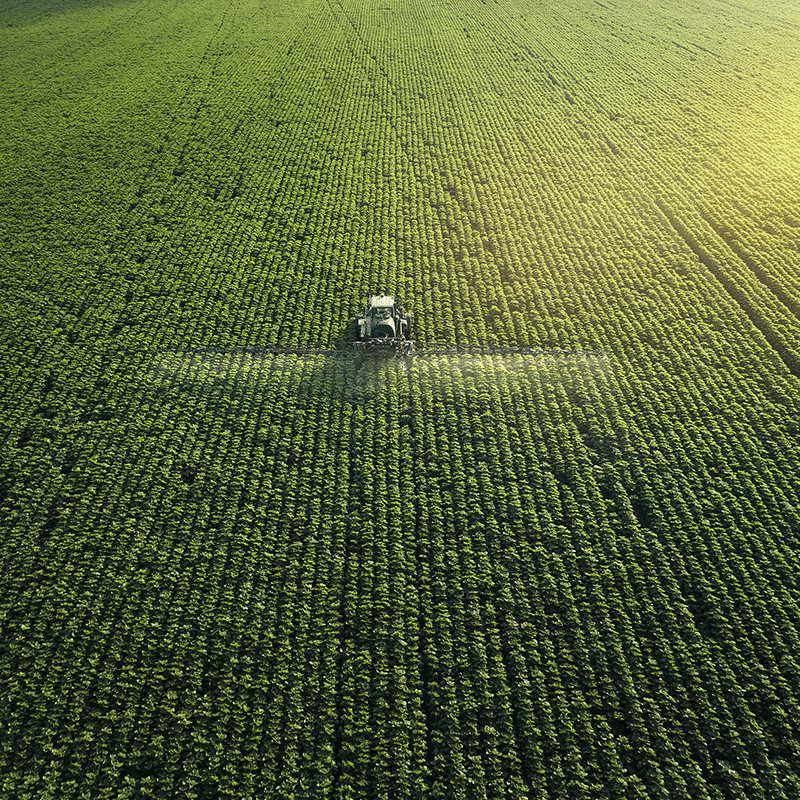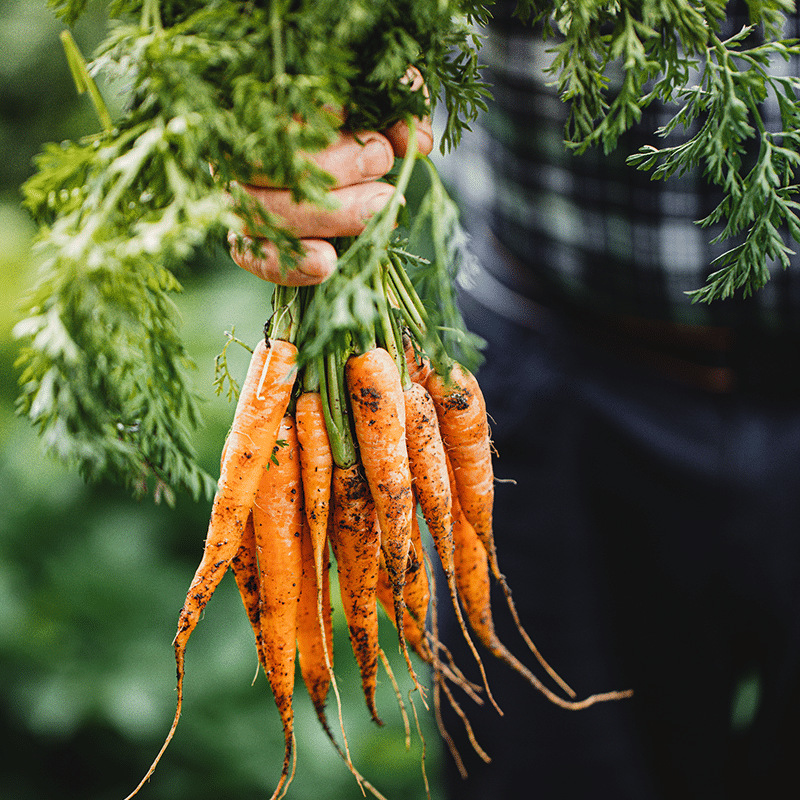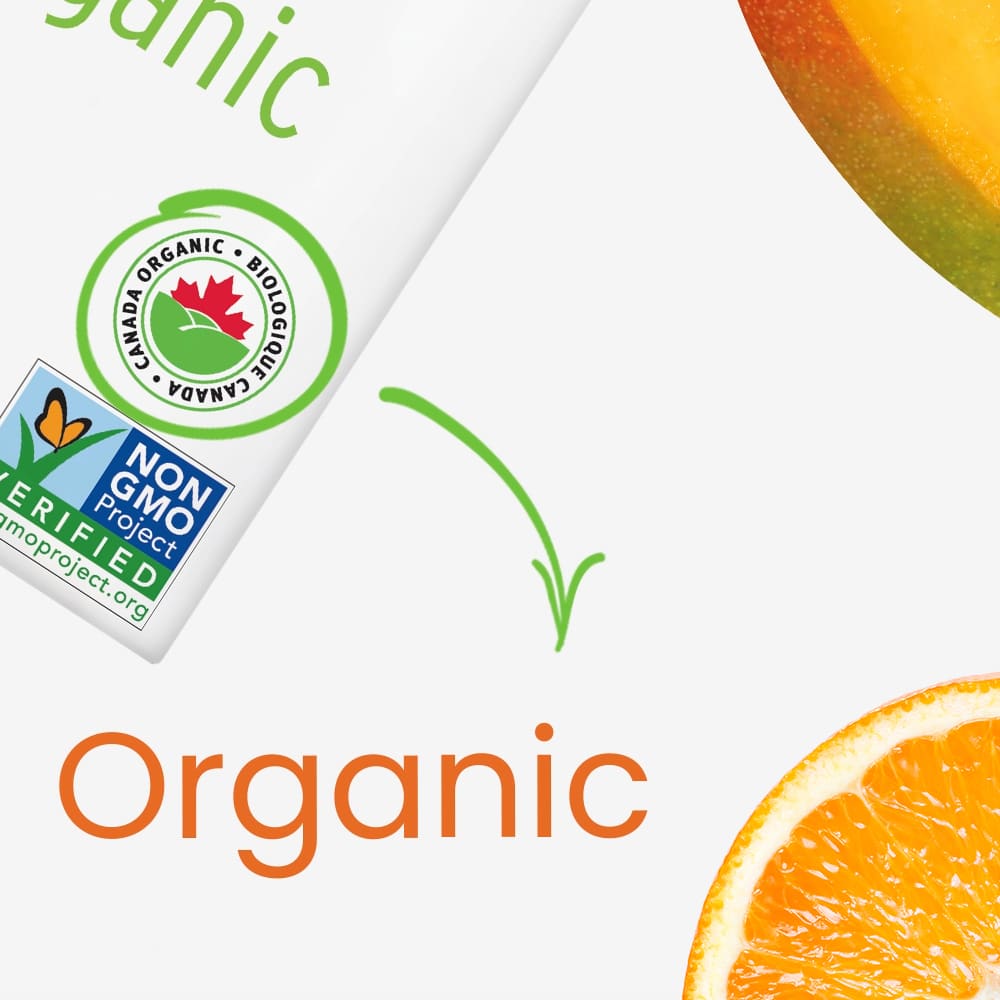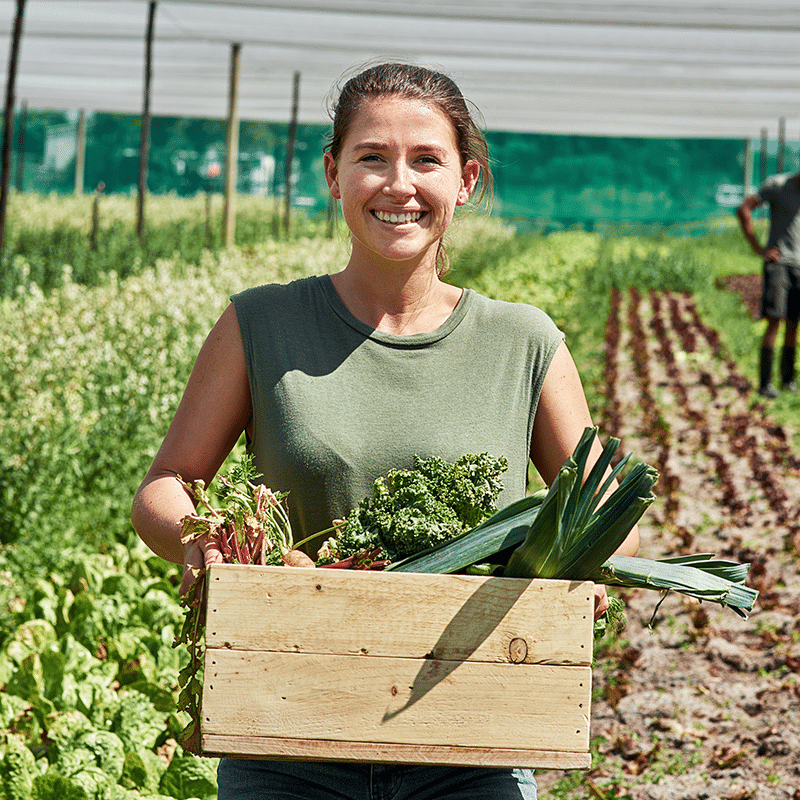Sometimes it can be hard to separate fact from fiction, which can be confusing. Read on to discover the truth behind five common organic food myths.
Myth #1 Organic Always Means Pesticide Free

So, does organic always mean pesticide-free? Not always.
Conventional farming uses pesticides to stop the spread of disease that can kill crops and trees.
Just like conventional farming, organic farming needs methods to maintain their food supply too.
The difference is the pesticides that are used by organic farming are derived from natural sources. For example, a natural pesticide is acetic acid, also known as vinegar. It helps regulate the pH and control pests like weeds, as well as helps clean seeds (1).
This is different than the pesticides used by conventional agriculture, which are generally synthetic. An example of a synthetic herbicide is the most widely used herbicide in Canada called glyphosate, also known as Roundup (2).
Organic farmers must use non-chemical pest control which reduces the amounts of toxins on organic food and in the environment (3).
Myth #2 Organic Foods Are More Nutritious

While organic foods do not permit the use of synthetic pesticides or synthetic fertilizers pesticides and fertilizers, they don’t appear to have a large nutritional advantage over conventional foods.
This systematic review article reveals some studies show no evidence of nutritional differences where other research articles reveal small to moderate increases in some vitamins and minerals (4).
Generally organic food have a lower content of nitrates and an increase content of polyphenols and Vitamin C, also known as antioxidants (4).
Myth #3 Organic Farming Is Only About Avoiding Synthetic Inputs

While organic farming does restrict the use of synthetic inputs like pesticides and fertilizers, it focuses on a building soil health, biodiversity, and sustainable farming practices.
Organic farming enhances natural fertility and structure of the soil with farming practices like (5):
- crop rotation that prevents the build of pests and diseases in the soil
- composting to create nutrient rich soil, improve soil structure and increase water holding capacity
- crop covering to prevent soil erosion and fix nitrogen in the soil.
Myth #4 Organic Means 100% Organic

According to the Government of Canada, organic processing practices require a minimum of 95% (not 100%) certified organic ingredients to be used in farming.
Thus, any product that has 95% or greater organic content can be labelled with the term “organic” (6).
Myth #5 Farmers Make More Money Selling Organic Food

While it is true that organic products are often priced higher than conventional products, this is not necessarily because of the cost of production.
Organic farmers may face higher costs due to strict regulations, certification, and record-keeping requirements. They have higher production costs because organic farming require more labour intensive and time consuming methods of pest control and soil management.
Additionally, organic farming practices may result in lower crop yields due to less efficient pest and weed control because of their avoidance of synthetic fertilizers.
That being said, they may also benefit from lower input costs, using resources in a sustainable way, prioritize reducing waste and produce better soil health over time.
Finally, the true cost of conventional food production may not be reflected in its price, as conventional farming practices can have negative impacts on soil health, water quality, and biodiversity, which can have long-term costs for society.
Final Thoughts
Even though there are several myths surrounding organic farming, organic farming practices can play an important role in building healthy soil, reducing synthetic pesticide residue on fruits, vegetables, grains and legumes and producing food sustainability for future generations.
This is why Kiju uses 100% organic fruits in their fruit beverage to reduce pesticide intake because as you know, we take organic seriously.

Veronica Rouse, MAN, RD, CDE
Registered Dietitian & Heart Healthy Eating Expert
Toronto, Ontario
